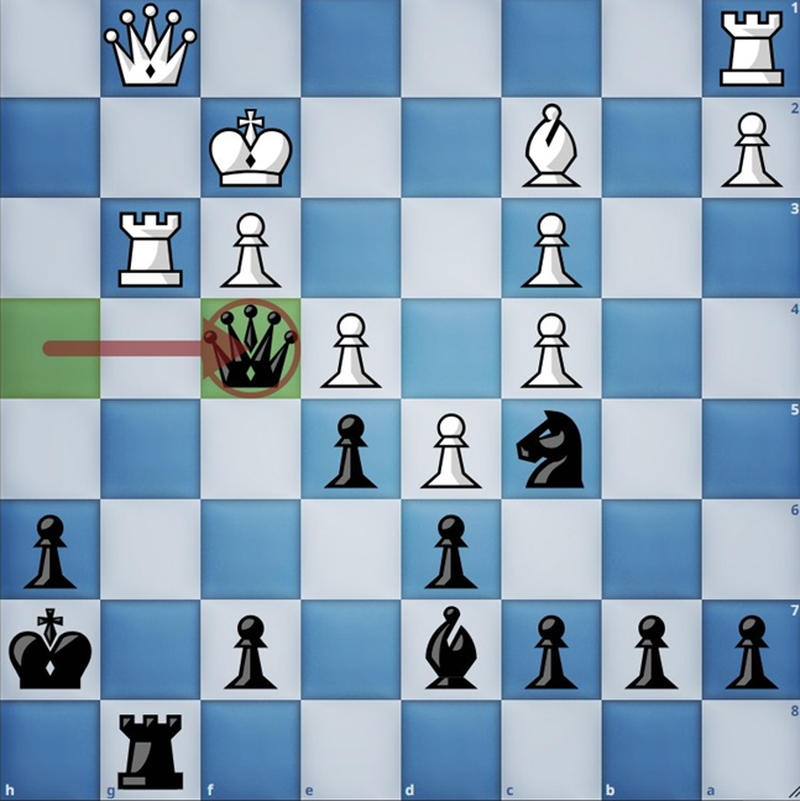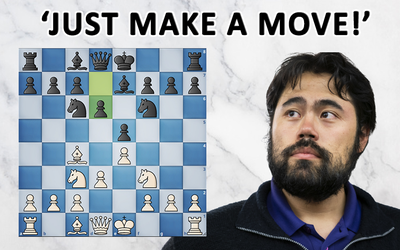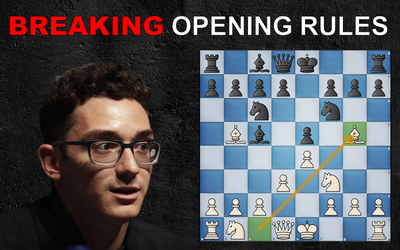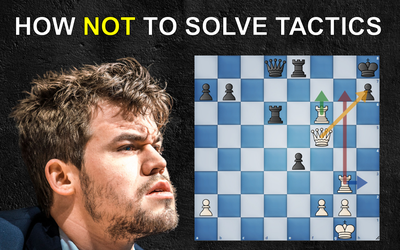
Are you good at resigning?
When and why do we resignThe vast majority of chess games end with the resignation of one of the players. To resign is to acknowledge that the game is already lost, and that for the opponent to checkmate us is only a matter of time. In chess culture it is considered a sign of respect towards the opponent, because it implies assuming that they will not make serious enough mistakes so that we won’t lose.
Resignation is quite characteristic of chess - there are not many other sports in which it is incorporated into the rules that one of the contestants recognizes defeat and ends the match. One of the few is boxing, with which other parallels could be drawn: the volatility of the 'advantage', the possibility of winning the confrontation at almost any moment (checkmate = knockout) and the consequent total unpredictability of the duration of the fight.
In recent times resignation is coming increasingly later. Online chess facilitates this trend. There, unlike in over-the-board games, there are no looks, no gestures. There is no post-game talk that makes us feel embarrassed for having hinted to our opponent that they are bad enough for there to be a chance that they won't win the game. However, there are a couple of common ways to respond to non-quitting even in online chess: messages via chat and exaggeration in the method of winning (e.g. promoting several queens, sacrificing some of the material advantage and winning with the minimum, letting time run).
This non-resignation provokes outrage mainly among chess players of the “older generation”. Contradictorily, they tend to get even angrier when they end up being shown that resigning would have been a bad decision. This can be observed daily by anyone who visits a chess club.
When do we resign? Although it is evident that playing against someone with an advanced level the possibility of turning the game around is practically null, there is a more difficult question to answer than whether we should give up or not: when do we do it? In this post I am not going to address the question of when it is best for us to resign because it is obvious that for practical purposes it is always 'advisable' to play until mate. I'm more interested in looking at *when* resignation typically occurs and why.
It logically arises to think that the probability of us resigning increases as the opponent’s advantage grows. I agree, but I think this explains a limited portion of the phenomenon. Of course no one quits if they think they are winning, but once we are already lost, why do we give up at one time and not at another? And what's more, why do we sometimes continue playing clearly lost positions but in other cases after a big mistake we feel absolutely frustrated and decide not to continue playing? From my experience playing and watching chess, I have not noticed any mathematical rule such as 'whenever I am 4 points behind I will resign’. What determines the moment of quitting is not a calculation of the disadvantage, but a more psychological experience.
The explanation lies in the fact that resignation is clearly influenced by changes in our mood. To understand this, a brief but rigorous description of what *mood* is will help us. According to recent theories of cognitive psychology, mood reflects the cumulative impact of differences between outcome and expectation determined by a context. Situations in which an established context does not match an outcome are perceived as mismatches (positive or negative differences) between expectations and the outcome. We can think of these differences as 'surprises', especially in the context of the chess game.
If we made a slight mistake in the opening, then our opponent puts pressure on us, building the lead slowly from start to finish, we are more likely to keep playing as long as possible. There was no surprise, we simply got a worse position and endured. The established context (worse position due to poor opening play) coincides with our expectations (that the opponent's advantage will slowly increase). It could be graphed as a linear progression until an irreversible advantage is achieved. In that case, we can emotionally endure great disadvantages. Perhaps, in part, because we feel like we don't 'deserve' to lose because of that single mistake at the beginning.
However, how many times have we resigned in the opening after losing a piece? Clearly there are times when it’s not a situation we could not overcome, but the negative surprise is very painful. Even worse: a strong emotion of regret invades us, which is greater the clearer and more identifiable our mistake is. Check out the following example:

The position above corresponds to a blitz game played by one of my students, who had the black pieces. After 23...Qf4? 24.Rxg8 he resigned, even though the position is approximately equal after 24...Qd2+, or at least extremely complex. It took him four seconds to make the decision, long enough to process that when he moved the queen he had stopped pinning the rook on g3, blundering his rook on g8 and suffer the terrible regret. If he had reached this same position a rook down from earlier, it would probably have been a “positive surprise” situation to find 24...Qd2+ after 10-20 seconds of thought.
We don’t resign because of how much disadvantage there is, but because of how it was reached.
Big thanks to my friend Gustavo Slomka for his help in the writing of this post. So far for today's blog, thanks for your attention!
Cheers!
Juan Cruz



